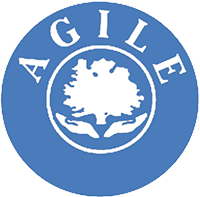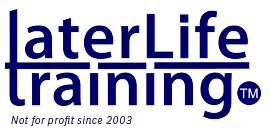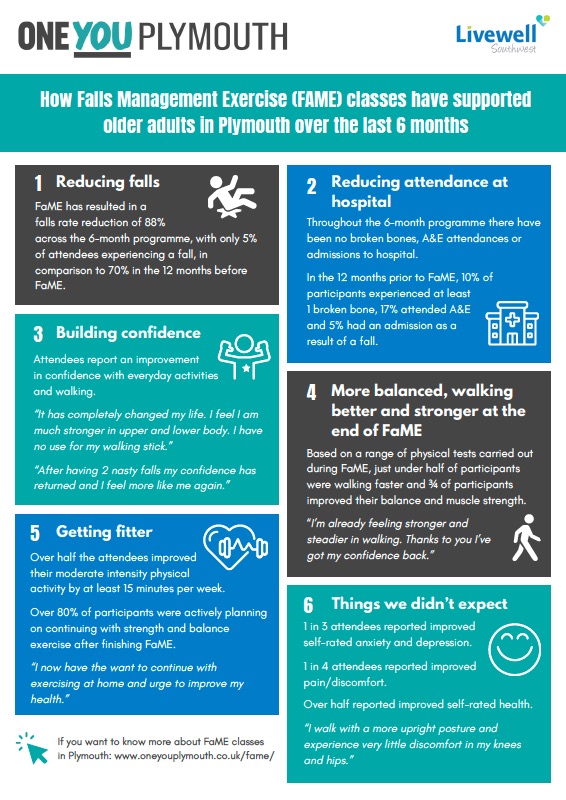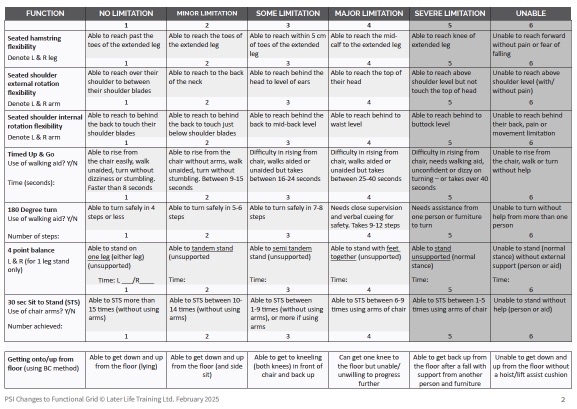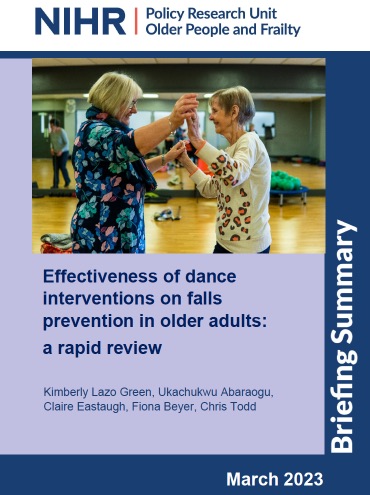
Why do we need to have a Referral Form?
AGILE, working in collaboration with Later Life Training, have produced a Referral Form that provides vital information for PSIs and OEP Leaders to support decisions for:
- suitability into programmes, (and venues and class sizes)
- baseline exercise selection and challenge,
- ongoing progression and tailoring, and
- scope of practice and insurance.
This information better supports transitions from health to leisure services and serves to further support partnership working to progress gains made by individuals in short term therapy led interventions. Look out for our webinar date to cover FAQs with AGILE in October.
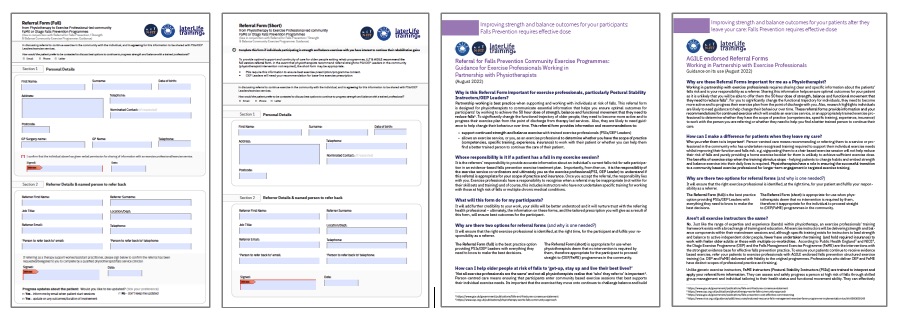
The Referral Form, the Short Referral Form, and the brief Guidance (for therapy and for exercise professionals) for their use, should help build trusted relationships and increase the understanding of our professions (both with a remit of exercise delivery). Just as not all therapists are the same, not all exercise instructors are the same and not all exercise has the same outcomes for falls prevention. Partnership working is key for better outcomes for older people at risk of falls, ensuring the right exercise at the right time, supported by the right professional.
We all know that people who have received some therapy input to start their falls prevention journey need more – more hours, more sustained input, more motivation to continue working on their strength and balance, beyond their ‘discharge’ from therapy. If they stop doing their exercises, they will decondition again and there will be a ‘revolving door’ situation when they fall again and return into the system.
Many reviews of exercise to prevent falls recommend that functional strength and balance work should be performed at least 3 times a week, for at least 2 hours and for 50 hours or more in terms of dose. This is not achievable in the therapy setting – the only way to get good patient outcomes is to ensure they transition on to other exercise opportunities that continue to meet their needs, work them in terms of intensity and challenge to continue the training effect, and that they are supported by someone who knows how to tailor and progress the exercises and provide additional motivational strategies for them to continue to improve their fitness and help them transition to self managed exercise as a habit. In the UK, the two exercise programmes with the most evidence of efficacy and return on investment are FaME (Falls Management Exercise, delivered by Postural Stability Instructors (PSIs)) and Otago (Otago Exercise Programme, delivered by OEP Leaders).
Referral Form (Full and Short):
The full Referral Form constitutes best practice and allows the exercise professional to continue with a specific prescription directed by the therapy team, or to develop a training programme that meets the health, functional, social and motivational needs of the patient. Although a Postural Stability Instructor has the ability to do all the pre-exercise assessment for them to be able to tailor a programme, many of their tests or questions would have already been asked within the therapy sessions and so this ensures a seamless transition from settings but with evidence based exercise being key to the outcomes for the patient.
The Short Referral Form is for use by therapists that have assessed a patients suitability for exercise and feels they don’t need therapy and can either go direct to an appropriately trained exercise professional for falls prevention exercise, or, indeed, straight to generic strength and balance activities to ensure they do not decline in physical function. This is particularly important if, for example, chair based opportunities are not appropriate as they need further balance input.
Guidance on the use of the Referral Forms
There are two short guidance documents on best use of the Referral Forms.
One is aimed at Physiotherapists and explains why these Referral Forms are important to use, the reasoning behind the questions asked of the referrer and the difference in education and experience of the range of exercise professionals.
The other is aimed at Exercise Professionals and explains the importance of ensuring that on receipt and reading of the referral form, that they check they are within scope of practice or refer on to a more suitably qualified individual and understand what information the therapy team would like back in order to follow up on patient outcomes after discharge to community exercise provision.
Support from N-FIT
N-FIT, the National FaME Implementation Team, with its multi-sector and multi-disciplinary steering group, have produced an open letter to therapists explaining the evidence base and the importance of referral on to community exercise provision. Read that letter here.
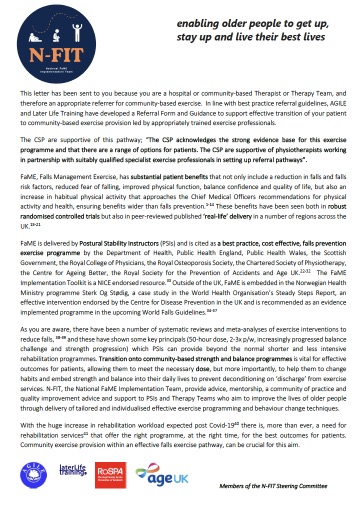
Future Plans
We have already received considerable feedback but it is important to continue to listen and we will review these again in receive will be collating feedback on the use of these and will likely update in Spring 2023.

